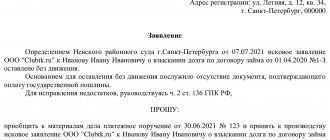Criminal liability for libel has always existed in Russian law, with the exception of a short period (about a year) when such actions were the subject of administrative cases under Art. 5.60 Code of Administrative Offenses of the Russian Federation. Since August 2012, administrative liability for libel was excluded, and amendments to the Criminal Code of the Russian Federation introduced a special norm - Article 128.1.
Currently, any person who considers himself a victim under this article has the right to initiate a criminal case and seek punishment for the offender. How to do this, what important points you need to know in order to protect your good name, read below.
The essence of the crime
Telling someone false information about a person is a brief definition of the concept of actions related to slander. Dissemination of false information about a citizen’s lifestyle, his allegedly illegal actions and deeds, participation in dubious or illegal transactions, defamatory connections, etc. - all this is covered by Article 128.1 of the Criminal Code of the Russian Federation.
Example No. 1 . Schoolgirl Petrova V.A. are bullied by high school girls. After another conflict, they spread rumors throughout the educational institution that Petrova V.V. suffers from a contagious disease, it is dangerous to come close to it. Parents of Petrova V.A. They went to court with a statement to bring the offenders to criminal liability for libel, and a guilty verdict was issued.
In this example, it is clear that the information that became known to other students
- false (that is, not true);
- they defame the honor and dignity of V.A. Petrova. – in simple words, the victim endures certain suffering, humiliation, feels violated in the rights to a good name, etc.
Recently, the most common cases are the dissemination of defamatory information on the Internet. Former spouses, conflicting parties in business, quarreling companions or friends - such social network users often use methods of humiliation through the World Wide Web. It can be difficult to prove the involvement of such people in slander, but it is still possible.
Example No. 2 . The ex-husband spread information online about his ex-wife engaging in prostitution. He sent all 148 friends in his social contacts a short message telling them when his wife “worked” and how much money she needed to pay per hour. The offended woman filed a lawsuit to protect her honor and dignity, as well as to prosecute the person who disseminated such information.
A separate article in the criminal law provides for liability for libel against a judge, prosecutor and other representatives of law enforcement agencies - this is stated in Art. 298.1 of the Criminal Code of the Russian Federation. Let us note that the law enforcement practice of this norm is quite modest: cases of this category are isolated in nature.
False information of an unpleasant nature is not considered a crime if it is said directly to the person about whom it is contained. Here we can talk about insult, and this is already administrative responsibility and the application is submitted to the district prosecutor (read more here).
Arbitrage practice
In modern judicial practice, there are many cases of libel, and sometimes the consequences of such actions are really serious.
Read on for some cases:
- In 2014, in the Saratov region, a citizen posted information on the Internet that her husband was engaged in illegal activities related to theft, fraud and extortion. At that time, the man was looking for work. The woman mainly focused public attention on the fact that it is not worth hiring a man, moreover, it will bring great harm to anyone who decides to deal with him. However, this information was not true. As a result, the woman was convicted in accordance with Article 128 of the Criminal Code of the Russian Federation. The punishment for her was a sanction of 500 thousand rubles, as well as compensation for the man’s material expenses that occurred during the period when he was unable to find a job.
- Also in 2014, in the city of St. Petersburg, a citizen, based on anger and jealousy towards his ex-girlfriend, posted obscene photographs of her on the Internet. All this was accompanied by many obscene and offensive statements addressed to her. In addition, the man reported that the girl had AIDS, which was not true. Due to the fact that the consequences of such actions could be truly serious, the accused was convicted in accordance with Article 128 of the Criminal Code of the Russian Federation. The punishment in his case was a fine in the amount of 3 million rubles, as well as compensation for moral damage to the victim.
- The following case, which took place in the Moscow region, was considered within the framework of the Code of the Russian Federation on Administrative Offences. A citizen contacted one of the real estate organizations in order to find rental housing. When housing was found, an employee of the organization informed the client that the owner of this premises had problems with the law and the tax service, and accordingly, it was not worth concluding an agreement with him. This was not true, so the victim went to court, which proved the guilt of the employee of the real estate office and collected a fine from him in the amount of 10 thousand rubles.
Any actions accompanied by slander or false denunciation are punishable under criminal, civil and administrative legislation, depending on the severity of the consequences, grounds and motives of the offender. In some cases, slander leads to particularly grave consequences, which is why the offender ultimately faces criminal liability.
Where to contact
As a general rule, cases of dissemination of knowingly false information relate to cases of private prosecution and are considered exclusively by magistrates of the area where the incident occurred.
This means that you must apply directly to the court for protection and initiate criminal prosecution of the guilty person yourself. It is not prohibited to file a report with the police, especially when the offender is unknown. After a procedural check and identification of the guilty person, the material will be sent to the magistrate with the results of a full check.
The specified requirements of the law apply to the actions of a guilty person falling under Part 1 of Art. 128.1 of the Criminal Code of the Russian Federation. If we are talking about “qualified”, that is, with additional signs, dissemination of false information, only the police will deal with the message; after verification, the case will be opened without the participation of the court and an investigation will be conducted into it.
That is why it is important to correctly understand and correctly qualify the part and article for which it is necessary to attract the person who slandered you.
How to prove slander and punish the slanderer - instructions
Victory over a slanderer is a difficult matter, but (with the help of lawyers) quite realistic. True, only if there is reinforced concrete evidence. Without them, it is impossible to win the case.
The main premise of the defense in court is evidence of the direct intent of the slanderer . That is, it will be necessary to prove that the distributor was well aware of the falsity of the information being disseminated and consciously desired the consequences of its dissemination.
How to fight?
Instructions for victims of slander
- Don't rush into battle unless you have evidence. Don't waste your nerves and time in vain.
- Get the support of a lawyer. He will advise you on how to competently collect evidence, write a statement and defend yourself further.
- Collect evidence: paper documents certified by a notary, audio and video materials, and, if available, testimony of witnesses.
- Seek a psychological and linguistic examination of libel on the Internet and in the media. This examination will help determine whether the materials contain signs of slander. If available, the expert opinion can be attached to the application.
- Where to contact? If you are going to bring the slanderer to civil liability, then the statement, written strictly according to the form, should be written to the district court (if the court’s decision is negative, we go higher - to the world court). If it’s criminal, then go to the police. However, the possibility of simultaneously submitting applications to both authorities cannot be ruled out. It is also possible to consider the application at the Prosecutor's Office.
- In addition to the requirement for a refutation, a citizen has the right to demand compensation for moral damage (in both civil and criminal proceedings). The consequences of slander in the form of moral and physical suffering will also have to be proven. The final amount of compensation is determined solely by the court.
- Time limit for consideration of the case in court. From the date of submission of the application to the office, it is 1 month.
- The statute of limitations for this crime (libel) is 3 years. There is no statute of limitations for filing a claim for compensation for moral damages.
Liability for libel
Currently, Article 129 of the Criminal Code of the Russian Federation has lost its force; Art. 128.1 of the Criminal Code of the Russian Federation. This norm contains five parts, which provide:
- sanction for “ordinary” libel, without additional characteristics. A classic example is Part 1 of Art. 128.1 of the Criminal Code of the Russian Federation is the communication of life facts that do not correspond to reality to several persons orally or electronically. For such actions, the legislator has provided for the most generous punishment - a fine of up to half a million rubles or compulsory labor ;
- similar actions, but on a larger scale - dissemination of unpleasant information in the media form a crime under Part 2 of Art. 128.1 of the Criminal Code of the Russian Federation, and provides for a fine of up to a million rubles, compulsory work of up to 240 hours . By the way, this same part covers actions to disseminate information not only in newspapers and magazines, radio and TV, but also in Internet blogs, on Internet sites (for example, on the VKontakte “wall”), advertisements, etc.;
- if an official position is used to disseminate defamatory information (for example, an employer brings to the attention of the heads of other companies about the negative qualities and unsatisfactory work of a former employee, which in reality does not exist), then in this situation Part 3 of Art. 128.1 of the Criminal Code of the Russian Federation and the punishment can be up to two million rubles ;
- misleading others about the presence of a certain person with a dangerous disease that is transmitted to people, or about bringing to justice for a crime of a sexual nature, if such information is false, are specified in Part 4 of Art. 128.1 of the Criminal Code of the Russian Federation and are punishable by a fine of up to three million rubles ;
- if there are rumors about accusations of committing a serious or especially serious crime - Part 5 of Art. 128.1 of the Criminal Code of the Russian Federation contains a sanction for punishment of up to five million rubles .
If, in addition to criminal punishment, you want to recover from the guilty person the amount of damage caused (for example, for the moral suffering that you experienced as a result of communicating unpleasant information to strangers), then you can write a statement of claim and attach it during the consideration of the criminal case.
Being Jewish 2. Laws regarding libel, retaliation and deceit
It is forbidden not only to gossip in pursuit of a specific goal, but also to frivolously talk about the mistakes of your neighbor. You can take revenge on the offender in the only permitted way - by improving your own character.
It is said in the Torah: “Do not spread gossip among your people” (Vayikra 19:16). The Gossiper listens to other people's conversations and spreads rumors. Even if he spoke the truth, it is still a violation of the Torah prohibition. Spreading rumors is a great sin, as it can lead to bloodshed. Therefore, the above verse from the book of Vayikra ends like this: “...and do not stand indifferently before the blood of your neighbor.”
An even greater sin is slander (lashon gara), when a person discredits someone by telling unflattering things about him, even if it is true. One who spreads obvious lies is called a sower of evil, an evil slanderer (motzi shem ra). This is the most vile of people, a moral leper.
One Hasidic parable tells of a man who spread slander about a rabbi. But one day he felt remorse and came to the rabbi to ask for forgiveness: “I want to atone for my guilt.” The rabbi told the man to take some pillows out of the house, rip them open, and throw the feathers to the wind. The requirement was somewhat strange, but easy. Having completed it, the offender again came to the rabbi. “Now,” said the rabbi, “go and collect all the feathers. I believe that you are sincere in your desire to atone for your guilt. But to correct what your words have done is as difficult as collecting feathers scattered in the wind...”
Anyone who listens to gossip without protest stands even lower morally than the slanderer himself. For if there were no one willing to listen to slander, there would be no harm from it.
Gossiping not out of malice, but out of frivolity, saying: “I’m just having fun,” is almost the same as slandering.
Anyone who persistently praises a person before his enemies, thereby embittering them, does not bring benefit, but harm.
Four categories of people are unworthy of having the Shekhina (Divine Presence) among them: slackers, flatterers, liars and evil-tonguers.
It is said in the Torah: “Do not take revenge...” (Vayikra, 19:18). Our sages teach: if anyone desires revenge, let him try to add one more virtue to his. This will be his “revenge”. For when the enemy learns that the man's virtues are praised and his good reputation spread, he will be defeated. If, on the contrary, he resorts to violence, the enemy will rejoice, for the one who takes revenge will bring shame upon himself and tarnish his good name.
It is not appropriate to experience evil feelings, for it is written: “... do not bear malice against the sons of your people” (Vayikra, 19:18).
It is forbidden to curse others in any language.
You cannot offend someone with words (insult, cause mental suffering). To offend with a word is a worse sin than to steal, because money or property can be returned, but nothing can make up for an insult. The Torah says: “Do not offend one another; fear your God" (Vayikra 25:17).
It is not appropriate to call a person a humiliating nickname, even if he is used to it and is not offended.
Neither a child nor an adult should be shamed, neither in the presence of strangers, nor even in the family circle. Our sages said on this matter: “He who publicly shames others is like one who sheds blood” and “He who publicly shames or ridicules others has no inheritance in the Hereafter.”
It is forbidden to deceive and be hypocritical. For example:
one should not insist that someone take part in a joint meal if it is known in advance that he cannot or will not accept the invitation;
there is no need to try to make a gift, knowing in advance that it will not be accepted;
It is forbidden to sell non-kosher meat even to a non-Jew if he is sure that he is buying kosher meat.
What is on the heart should also be on the lips. You cannot say one thing and think another - this is duplicity.
Based on the words of the Torah, “And true balances... shall be yours” (Vayikra, 19:36) > our sages teach that a person must be true to his word even when he gives it not in the form of an oath.
If a gift - no matter how generous or modest - is promised to a poor person, regardless of whether he believes such a promise or not, the one who gave his word cannot take it back. The promise given to the poor takes on the character of a vow. The Torah says: “Stick to the words that come out of your mouth.”
“Almighty! Who will live in Your tent? …He who speaks the truth in his heart” (Tehillim 15:1,2). These words of King David teach us even higher virtue. In everything that concerns relationships with others, you should be especially scrupulous. If you are planning to do a good deed, it is your duty not to put it off, even if the decision has not been expressed in words.
Share this page with your friends and family:
What's up
Proof
Before filing a claim with the court or the police for libel, you need to collect all possible evidence of illegal actions. How to prove libel under Article 128.1 of the Criminal Code of the Russian Federation in 2016? Strong evidence may include:
- SMS - messages, call details and audio recordings of conversations;
- screenshots of sent pages or information that the applicant found unflattering;
- witness statements;
- written materials (for example, when information is disseminated by letters on paper, advertisements), etc.;
- evidence of false information about you.
Example No. 3 . Citizen Kosheleva A.I. appealed to the court with an application to attract I.I. Kustov. under Article 128.1 of the Criminal Code of the Russian Federation, for the fact that a letter was sent to her employer to bring Kosheleva to justice for a serious crime against property. The result of providing this false information was Kosheleva’s dismissal from the company. At the court hearing, Kosheleva presented letters sent by the attacker, as well as a criminal record certificate, which she herself ordered in advance through the government service website. The certificate stated that Kosheleva had never been a defendant in any case.
In this case, we see that the applicant was well prepared for the process and, as it later became known, the decision was in her favor.
Example No. 4 . Zelenina O.V. appealed to the court with a request to prosecute for libel her former partner Konin R.O., who informed her mother about Zelenina’s abuse of alcohol in large quantities. During the consideration of the case, the court requested information about O.V. Zelenina. at place of residence and work. It turned out that Zelenina had been fired long ago due to drinking alcohol-containing products at work, was twice charged with administrative charges for drinking alcohol in a public place, and had been registered with a drug treatment clinic for three years now. The court sided with R.O. Konin, who actually only wanted to draw attention to the inappropriate lifestyle of his ex-wife and strengthen control over the upbringing of her common child.
From this example it follows that Zelenina O.V. did not prepare for the process, as a result of which the court received information that did not correspond to the content of the application.
What to do if you are a victim of slander?
If you have discovered false information about yourself on the Internet, in the media, or have heard somewhere some facts that do not correspond to reality, it is first of all better to talk to a legal consultant: he will tell you where it is best to turn specifically in your case.
In addition, you can contact:
- To the police.
- To the prosecutor's office.
- To court.
To hold someone accountable for committing illegal actions, you must provide evidence: screenshots, correspondence, audio recordings, photos or videos.
Law enforcement agencies will ask you to make a statement in which you must:
- indicate the name of the law enforcement agency to which you intend to file an application;
- state all the facts and information related to the offense (time, place, circumstances, alleged culprit);
- attach the evidence you have (screenshots, correspondence, audio recordings, photos or videos);
- demand that the culprit be brought to justice in accordance with the article of the Criminal Code, Civil Code, Code of Administrative Offenses of the Russian Federation.
The statute of limitations in this case is two years. This means that if you are a victim of libel, you do not have to wait: after two years from the date of the crime, it will no longer be possible to file a claim.
Sample statement of slander to the police
So, the evidence has been collected, the personal information of the offender has been established, and you intend to punish him. At this stage, it is important to write the application correctly.
Use a sample statement of defamation to the police. Explanations that may be important in a given situation are highlighted in blue:
To the Head of the Police Department of the Travinsky District of St. Petersburg, to Police Colonel A.G. Snegov. from Mironov I.L., born in 1970, living at St. Petersburg, st. Knizhnaya, 1, apt. 3, tel. 892800000
If you unknowingly sent an application to the prosecutor's office, then there is no significant mistake: the documents will simply be sent to the appropriate police department. As a result, the verification will last several days longer, and there will be no consequences in the form of refusal to accept. Be sure to include your phone number for contact
STATEMENT
I ask you to involve Roman Pushnin, I don’t know the full details, who lives in building 3, st. Kuznetsova, St. Petersburg, apartment number and telephone number are unknown to me, criminal liability under Part 3 of Art. 128.1 of the Criminal Code of the Russian Federation.
In this example, as we could note, there is no complete data about the first name, last name and patronymic of the person referred to by the victim. Additionally, indicate in the application a request to establish the identity of the slanderer.
The circumstances of what happened are as follows. Pushnin Roman spread rumors on the Internet that two years ago I was released from a colony, where I was serving a sentence of 10 years in prison for the murder of a relative. At the same time, this information is false, since I have never been convicted (I attach a certificate).
Be sure to indicate what consequences occurred after the described actions.
These actions of Pushnin R. humiliated my dignity and discredited my name. I was forced to prove to all my friends that the above information was false and show a certificate.
Write down exactly what evidence you could present.
I ask you to interview my friend Repina Dinara, who lives on the street, based on the circumstances I have written. Tarasovykh, 1, apt. 4, St. Petersburg, tel. 8928000777 Malygina A.E., living on st. Nevsky, 2, apt. 6, St. Petersburg, tel. 8928000333. In addition, I am attaching screenshots of all pages of the Odnoklassniki portal.
Based on the above, guided by art. 128.1 of the Criminal Code of the Russian Federation,
ASK:
Bring R. Pushnin to criminal liability under Part 5 of Art. 128.1 of the Criminal Code of the Russian Federation, impose a fine on him in the amount of 5,000,000 rubles.
Mironov I.L., date, signature.
The statement of claim, if any, can be attached immediately when submitting the appeal to the office, or you can declare it later, even after the case has been considered.
Results of consideration
- The court (if Part 1 of Article 128 of the Criminal Code of the Russian Federation) or the police (Parts 2-5 of Article 128.1 of the Criminal Code of the Russian Federation) initiate a case and attract the persons involved.
- Once the information is collected by the police, it is forwarded to the magistrate for a decision on the merits.
- In court, directly during the consideration of the criminal case, a claim for compensation of funds will be investigated, at your request.
- The court is obliged to pronounce a verdict, whether acquittal or conviction, it all depends on the internal conviction of the judge.
- If you do not agree with the court decision, you can appeal it to a higher authority (regional court).







